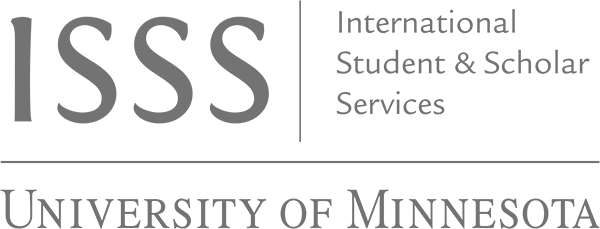ISSS celebrated the 25th anniversary of the Culture Corps program in November 2023, as part of International Education Week.
International Student and Scholar Services’ Culture Corps program helps international students share their global perspectives with the University of Minnesota. Students receive funding for developing projects and initiatives that enrich cross-cultural understanding, whether it’s offering linguistic and cultural support in the language classroom, creating opportunities for international and domestic students to connect, or helping new international students adjust to campus life.
Since the program began in 1998, over $1.7 million in funding has been awarded to support more than 2,600 students.
Sharing their unique perspectives
Paida Chikate has been working with Culture Corps for two years under a partnership with the University of Minnesota Police Department. As International Outreach Leader, she helps the Department of Public Safety connect with international students and listen to their concerns.
“As an international student, you can bring a different perspective,” Paida said. “Policing in the U.S. is a very specific thing, whereas policing generally in the world may be another thing. Seeing the world through those two lenses helps you become more objective, or at least have some grace when it comes to some of the tensions that are between police and people in the U.S.”
Paida explained she can also have more honest conversations with students, as she’s coming from the same place they are.
“Sometimes when staff, faculty, or UMPD folks want to talk about safety, it’s difficult because they are stakeholders in the system that has all these complications,” she said.
Learning goes both ways
Other Culture Corps students have taught classes to older Minnesotans through the Osher Lifelong Learning Institute (OLLI).
Antony Maikuri created the “Diverse Voices of Africa” class at OLLI, which brings in guest speakers—other international students at UMN—from different countries each week.
“We want to ensure that the misconceptions and perceptions people have are met with reality from African students themselves,” Antony said.
And it’s not only the OLLI students who are learning.
“There is also the aspect of me wanting to learn from these adults with their connection of American experience—there is that beautiful exchange of information,” Antony said.
Invaluable to faculty
Katrien Vanpee, director of the Arabic program in the department of Asian and Middle Eastern Studies, has been working with Culture Corps students since 2016.
Ayman Ahmed was the Arabic program’s first Culture Corps language and cultural consultant. He visited different Arabic classes to practice conversational skills with students. He also gave a candid talk about his home country of Bahrain, a country about which Arabic language learners often learn very little.
“This was all the more important because Arabic textbooks and Arabic curricula…tend to center very much on the experience of upper middle class Sunni Muslim young people from Cairo and Damascus, leaving out the lived experiences of hundreds of millions of Arabs and Muslims in other communities and other countries,” Vanpee said.
Husain Al Ahbabi, a Culture Corps consultant and an international sponsored student, also helped diversify what students were learning in the classroom. Vanpee was working to create a brand new curriculum for Arabian Peninsula colloquial Arabic, known as the khaleeji dialect. As part of his Culture Corps project, Al Ahbabi reviewed the vocabulary lists created by Vanpee and her colleagues and recorded conversations with a graduate student to be used in the dialect course. In addition, he started to lead not just the regular weekly Arabic conversation table, but also khaleeji dialect conversation sessions.
Culture Corps students have benefited Vanpee’s research, as well. Hamad Al Ahbabi, an international sponsored student, was very interested in Nabati poetry, which happened to be the topic of Vanpee’s dissertation. This originally oral, vernacular poetry from the Arabian Peninsula is composed in a specific poetic idiom. Even Arabic speakers from the Arabian Peninsula will not be able to understand all the words. Hamad was able to review Vanpee’s translations, contributing to published research.
Vanpee says the Culture Corps program has been an invaluable asset to the Arabic program.
“Our Culture Corps consultants have been beloved by students without exception,” Vanpee said. “They draw students in with their enthusiasm, with their insights, with their perspective. They’re really irreplaceable and have contributed so much to the vitality of the Arabic program.”
Are you a student who would like to share your unique perspective? Or a faculty or staff member interested in working with Culture Corps? Learn more about the program and how you can get involved.
